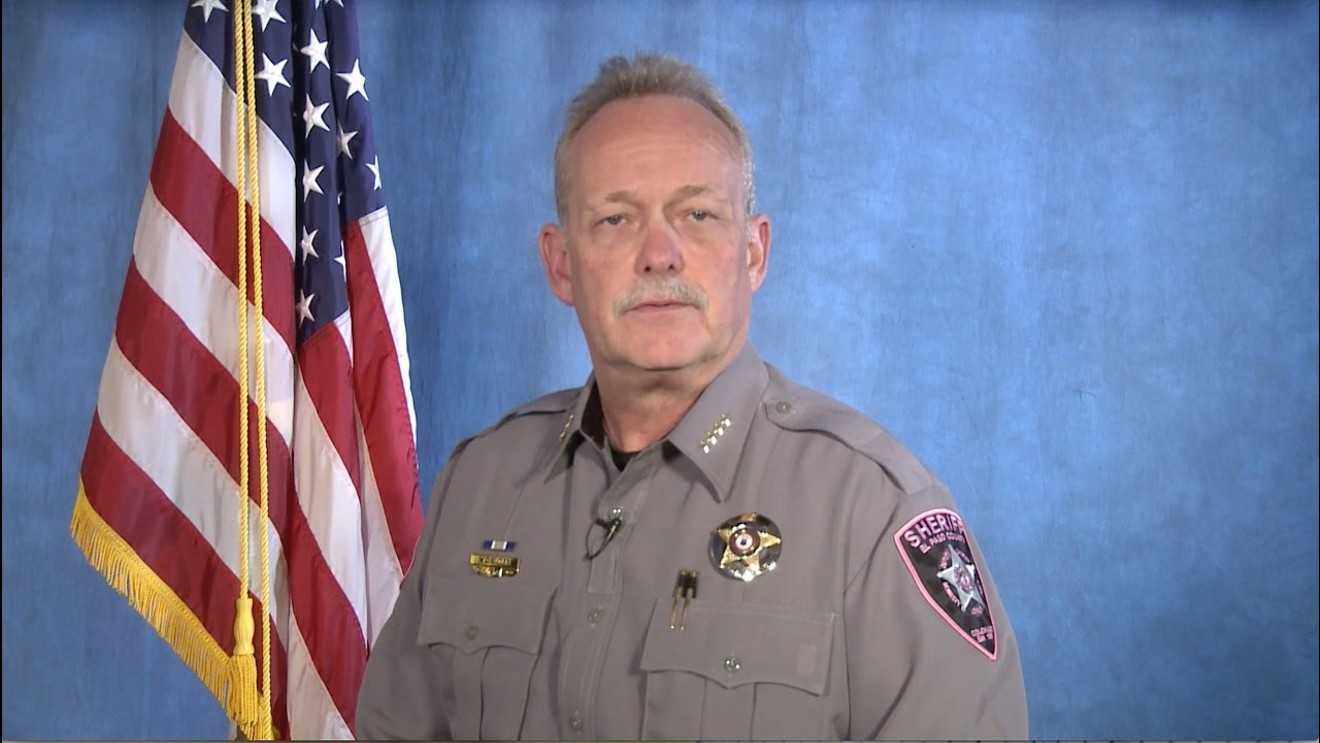The practice is controversial — and perhaps extra-legal. In recent years, judges across the country have been deciding whether detainers violate protections outlined in the U.S. and state constitutions.
On Thursday, December 6, District Court Judge Eric Bentley in El Paso County became the latest judicial authority to declare the practice unlawful.
The case began on February 27, when the ACLU of Colorado sued Sheriff Elder on behalf of two individuals (who later became representative plaintiffs when the case grew into a class-action lawsuit) who had tried to post bond in El Paso County but were denied release from jail when the sheriff's department informed them that ICE had placed a “hold” on them. Both were held in jail for months. The ACLU identified other inmates who were held anywhere between days and months so that ICE could pick them up at the federal agency's prerogative.
By March, Judge Bentley appeared to be siding with the ACLU of Colorado's argument in the case against Elder. He issued an injunction on March 19 against the El Paso County sheriff, halting El Paso County's ICE detainer practice until the case was fully resolved. Bentley's 31-page ruling this week makes that injunction permanent and spells out a detailed legal argument against ICE detainers.
“ICE detainers are requests, not commands,” Bentley writes in his analysis. “Colorado and federal law does not authorize the sheriff to continue to detain a prisoner after his or her release date.”
The judge continued to say that by adhering to ICE's detainer requests, Sheriff Elder was violating protections under the state constitution, including the right to due process (because Bentley considered detention past a release date to be equivalent to a “second arrest”) as well as the right to bail.
The decision has drawn praise from members of immigrant-rights organizations, including Brendan Greene, the Colorado Immigrant Rights Coalition's campaign director, who says, “We applaud all Colorado sheriffs who continue to defend the constitution and not be tricked by ICE's misinformation campaign. We look forward to working with Sheriff Elder to repair the damage that has been done by ICE and make sure that all El Paso County residents can trust calling their local sheriffs knowing their rights will be protected."

Undercover ICE arrests at Colorado courthouses are another controversial practice that may come under legal review.
Meyer Law Office
Only two out of Colorado's 64 counties, including El Paso County, continued to honor ICE detainers. (Denver even outlawed the practice in the immigration ordinance it passed last year.)
Teller County still honors detainers, and a separate case there is currently under way. That ruling — if it goes differently than Bentley's — could complicate matters in Colorado, a scenario the El Paso County judge mentions in Thursday's ruling. He suggests the question of ICE detainers may not be settled in Colorado.
“The other county known to the Court is Teller County. A case similar to this one is pending there, and the Court in that case ruled preliminarily in favor of the sheriff. (Salinas v. Mikesell, case no. 2018CV30057 [trial set for June 2019].) Clearly, the issues are ones on which reasonable minds may differ. Resolution of one of these cases by a higher court is needed in order to provide certainty in this area to Colorado’s sheriffs and the immigrant population.”













